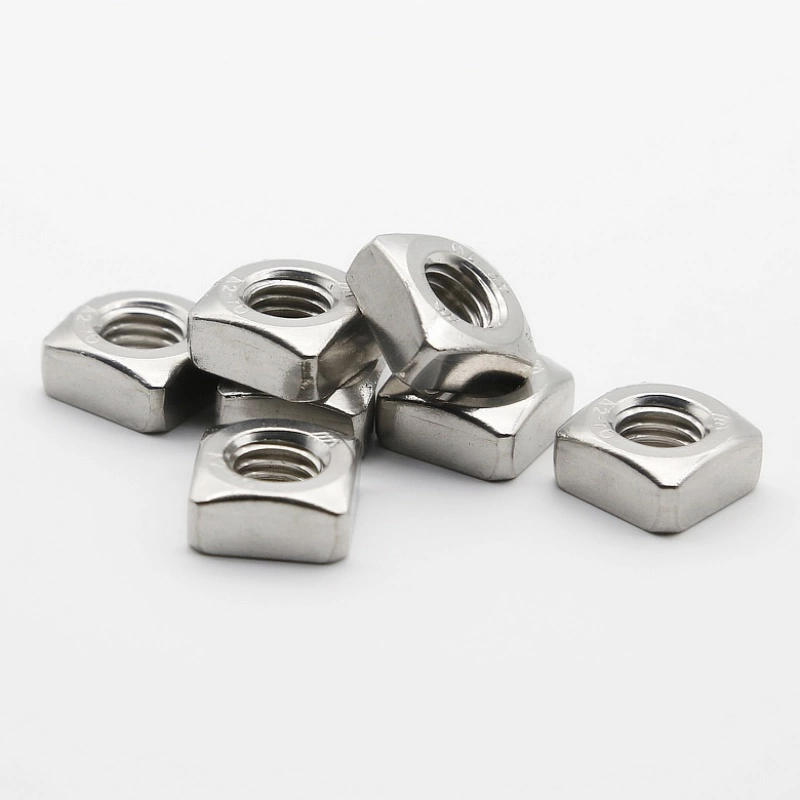

stud bolt 8.8
Dec . 12, 2024 01:42 Back to list
stud bolt 8.8
Understanding Stud Bolt 8.8 Characteristics and Applications
Stud bolts are vital components in the realm of mechanical engineering and construction, primarily used to fasten two or more parts together, ensuring structural integrity and security. Among various types of stud bolts, the 8.8-grade stud bolt is particularly notable due to its balance of strength and ductility, making it a preferred choice in many industries.
What is a Stud Bolt?
A stud bolt is a type of fastener that is partially threaded. One end of the stud is threaded for a nut, while the other end can be either plain or threaded depending on the design requirements. The simplicity of stud bolts allows for easy installation and removal, which is why they are commonly found in applications that require regular maintenance or adjustments.
The Significance of the 8.8 Grade
.
The designation 8.8 signifies specific properties regarding the tensile strength of the bolt. The first digit, 8, indicates that the minimum tensile strength is 800 MPa (Megapascals), while the second digit indicates that the yield strength is approximately 80% of the tensile strength, placing it at about 640 MPa. This classification is governed by international standards, specifically the ISO standard, which ensures that products meet consistent performance criteria.
Stud bolts graded 8.8 are made from carbon steel and are often surface treated to prevent corrosion. This combination of high strength and reasonable ductility makes them suitable for a wide range of applications, particularly in environments where reliability is paramount.
Applications of Stud Bolt 8.8
1. Construction Industry Stud bolt 8.8 is widely used in the construction of buildings and bridges. The high tensile strength ensures that they can withstand significant loads and stresses, which is essential for maintaining the safety and stability of structures.
2. Oil and Gas Industry In the oil and gas sector, equipment often operates under high pressure and temperature conditions. Stud bolts are commonly used to secure flanges and other critical components in pipelines and drill rigs. The 8.8 grade offers the durability necessary for these challenging environments.
stud bolt 8.8

3. Manufacturing In manufacturing processes, particularly in heavy machinery, stud bolts are used to assemble parts that require a robust and stable connection. The strength of the 8.8 stud bolts helps to ensure that equipment remains operational under demanding conditions.
4. Automotive Industry The automotive sector also utilizes stud bolts, particularly in the assembly of engines and chassis components. The reliance on 8.8 grade bolts ensures that vehicles can withstand significant mechanical stress during operation, contributing to overall safety.
Advantages of Using Stud Bolt 8.8
Using stud bolt 8.8 offers several advantages
- High Strength The ability to sustain high loads makes them suitable for critical applications. - Versatility They can be utilized in various industries, including construction, oil and gas, and manufacturing, highlighting their adaptability.
- Cost-Effectiveness While high-strength materials often come with a premium price, grade 8.8 stud bolts provide a balance between performance and cost, making them an economical choice for many applications.
- Corrosion Resistance When treated appropriately, 8.8 stud bolts can resist corrosion, thus extending the lifespan of the components in which they are used.
Conclusion
The 8.8-grade stud bolt serves as a fundamental component across many industrial sectors due to its remarkable mechanical properties and versatility. With its high tensile and yield strength, it ensures safety and reliability in applications ranging from construction to automotive manufacturing. As technology advances, the demand for robust fasteners will continue to grow, and the 8.8 stud bolt stands out as an exemplary choice for engineers and manufacturers alike. Understanding its properties and applications is essential for anyone involved in fields that rely on the integrity of fasteners and assembly techniques.
Latest news
-
High-Strength Hot-Dip Galvanized Bolts-Hebei Longze|Corrosion Resistance&High Strength
NewsJul.30,2025
-
Hot Dip Galvanized Bolts-Hebei Longze|Corrosion Resistance&High Strength
NewsJul.30,2025
-
Hot Dip Galvanized Bolts - Hebei Longze | Corrosion Resistance, High Strength
NewsJul.30,2025
-
High-Strength Hot Dip Galvanized Bolts-Hebei Longze|Corrosion Resistance, Grade 8.8
NewsJul.30,2025
-
Hot Dip Galvanized Bolts-Hebei Longze|Corrosion Resistance,High Strength
NewsJul.29,2025
-
High-Strength Hot Dip Galvanized Bolts - Hebei Longze Metal Products Manufacturing Co., Ltd.|corrosion resistance&high strength
NewsJul.29,2025

